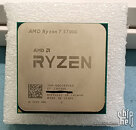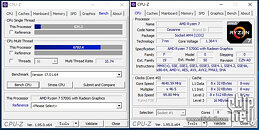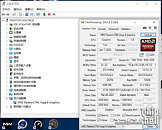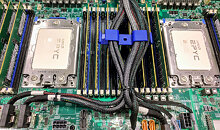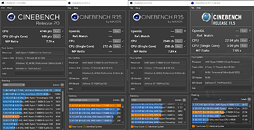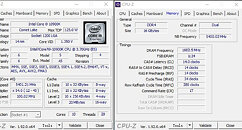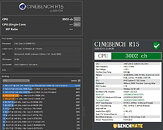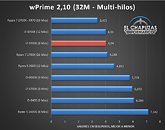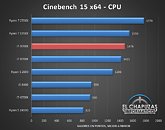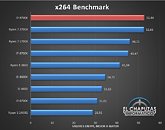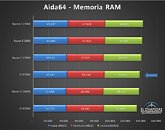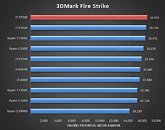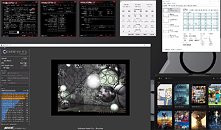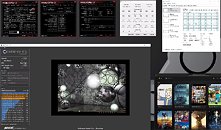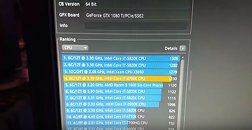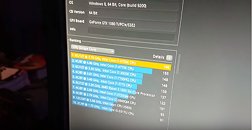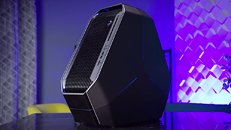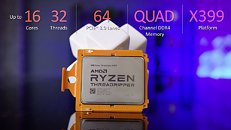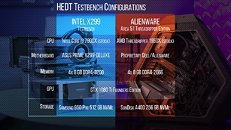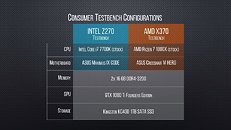
AMD Ryzen 9 9950X3D Leaked 3DMark & Cinebench Results Indicate 9950X-esque Performance
The AMD Ryzen 9 9950X3D processor will head to retail next month—a March 12 launch day is rumored—but a handful of folks seem to have early samples in their possession. Reviewers and online influencers have been tasked with evaluating pre-launch silicon, albeit under strict conditions; i.e. no leaking. Inevitably, NDA-shredding material has seeped out—yesterday, we reported on an alleged sample's ASUS Silicon Prediction rating. Following that, a Bulgarian system integrator/hardware retailer decided to upload Cinebench R23 and PCMark Time Spy results to Facebook. Evidence of this latest leak was scrubbed at the source, but VideoCardz preserved crucial details.
The publication noticed distinguishable QR and serial codes in PCbuild.bg's social media post; so tracing activities could sniff out points of origin. As expected, the leaked benchmark data points were compared to Ryzen 9 9950X and 7950X3D scores. The Ryzen 9 9950X3D sample recorded a score of 17,324 points in 3DMark Time Spy, as well as 2279 points (single-core) and 42,423 points (multi-core) in Cinebench R23. Notebookcheck observed that the pre-launch candidate came: "out ahead of the Ryzen 9 7950X3D in both counts, even if the gaming win is less than significant. Comparing the images of the benchmark results to our in-house testing and benchmark database shows the 9950X3D beating the 7950X3D by nearly 17% in Cinebench multicore." When compared to its non-3D V-Cache equivalent, the Ryzen 9 9950X3D leverages a slight performance advantage. A blurry shot of PCbuild.bg's HWiNFO session shows the leaked processor's core clock speeds; going up to 5.7 GHz (turbo) on a single CCD (non-X3D). The X3D-equipped portion seems capable of going up to 5.54 GHz.
The publication noticed distinguishable QR and serial codes in PCbuild.bg's social media post; so tracing activities could sniff out points of origin. As expected, the leaked benchmark data points were compared to Ryzen 9 9950X and 7950X3D scores. The Ryzen 9 9950X3D sample recorded a score of 17,324 points in 3DMark Time Spy, as well as 2279 points (single-core) and 42,423 points (multi-core) in Cinebench R23. Notebookcheck observed that the pre-launch candidate came: "out ahead of the Ryzen 9 7950X3D in both counts, even if the gaming win is less than significant. Comparing the images of the benchmark results to our in-house testing and benchmark database shows the 9950X3D beating the 7950X3D by nearly 17% in Cinebench multicore." When compared to its non-3D V-Cache equivalent, the Ryzen 9 9950X3D leverages a slight performance advantage. A blurry shot of PCbuild.bg's HWiNFO session shows the leaked processor's core clock speeds; going up to 5.7 GHz (turbo) on a single CCD (non-X3D). The X3D-equipped portion seems capable of going up to 5.54 GHz.



























